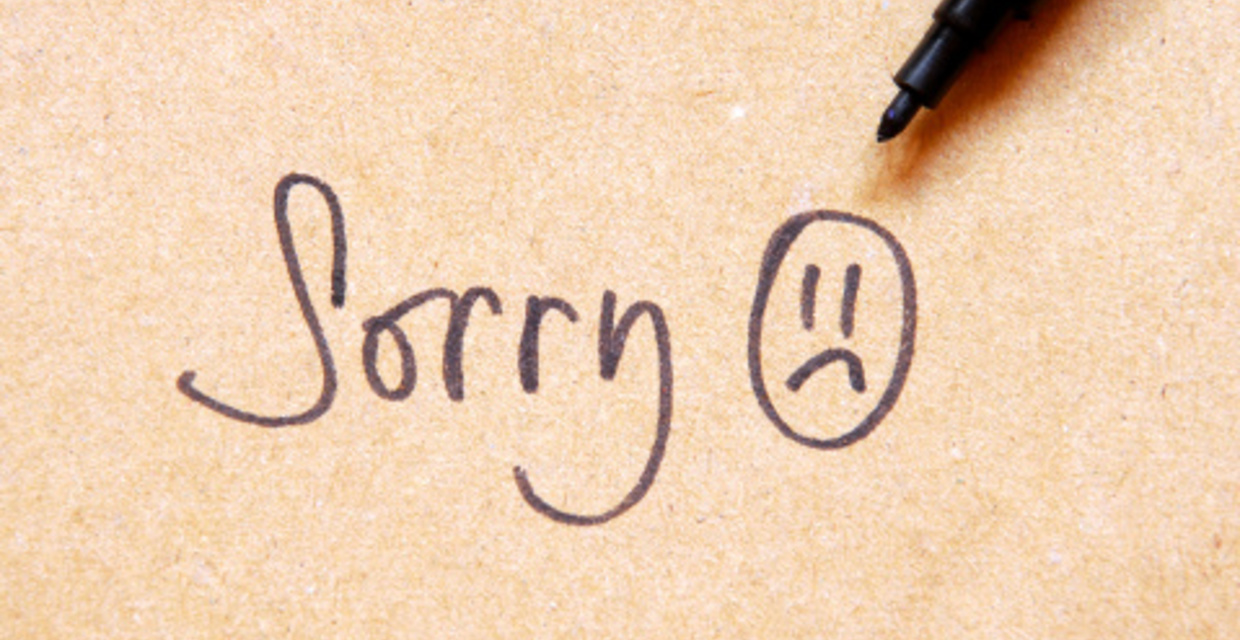- May 26, 2017
- By domesticshelters.org
Heartfelt apologies can go a long way. “I’m sorry what I said hurt your feelings.”
Polite apologies make us decent human beings. “I’m sorry I was late to our meeting!”
But repetitive, nearly constant apologies for every little thing—or, what Psychologist Paige Carambio, PsyD calls, “apologizing for existing”—can actually be an after-effect of trauma, a self-preservation technique survivors may think they still need to utilize in order to protect themselves.
“It goes back to the first stage of being with an abuser, when the abuser is doing everything he or she can to tear the person down and make them feel completely worthless,” says Carambio, who works with survivors of domestic abuse in Beverly, Mass. She says that hearing verbal derogation day-in and day-out can cause you to internalize those messages. What carries over, even after leaving the abuser, is this feeling that you need to apologize for every little thing, especially with a new partner, says Carambio.
Using Sorry as Your Shield
Saying, “I’m sorry” at the drop of a hat can mean you have more healing to do, suggests Carambio. “Survivors may have used this as a protective behavior to avoid negative responses from a partner in the past. It can be an automatic thing, to try and avoid triggering a harmful response [from an abuser].”
In women specifically, Carambio says she sees a need to over-apologize even when they weren’t abused. She says there’s a cultural notion that women shouldn’t speak up and say what they’re feeling, so they apologize for sharing their thoughts after they speak.
“There are different expectations for women. Women are encouraged to always be aware of other people’s feelings and to try to manage others’ responses. This [over-apologizing] comes from a more submissive and lower-power kind of place. Things are very much changing for the better, but there are hundreds of years of cultural notions to diffuse.”
How to Cut Back on the Apologizing
Seek Support. Survivors shouldn’t feel like expressing their thoughts needs a disclaimer. If you find yourself over-apologizing, it’s worth exploring a way to continue healing from your past. Carambio suggests talking to a trained domestic violence advocate about finding a support group of other survivors in your area. “That loss of self-esteem is so toxic to a survivor’s health and well-being,” says Carambio.
Self-Pep Talks. When you find yourself utilizing the “I’m sorry” for the tenth time in one day, you may want to try repeating some positive affirmations in your head, says Carambio. “Even something as simple as, ‘I’m worthy. I’m deserving of love and I don’t have to apologize.’ Just acknowledging that it happened may mean you won’t be so quick to jump to the ‘sorry’ next time because you’ll start to believe you’re a good person.”
What to Say to the Apologizer
“It’s really important not to get frustrated as a partner, friend or family member of someone who over-apologizes,” says Carambio. Telling them repeatedly, “Don’t apologize,” may actually make a survivor feel more frustrated.
Instead, she suggests, “Encourage them, maybe not in reaction to them apologizing, but at other times. Have an open and honest conversation about how much that person means to you and how important they are in your life can help build up their self-esteem.”

